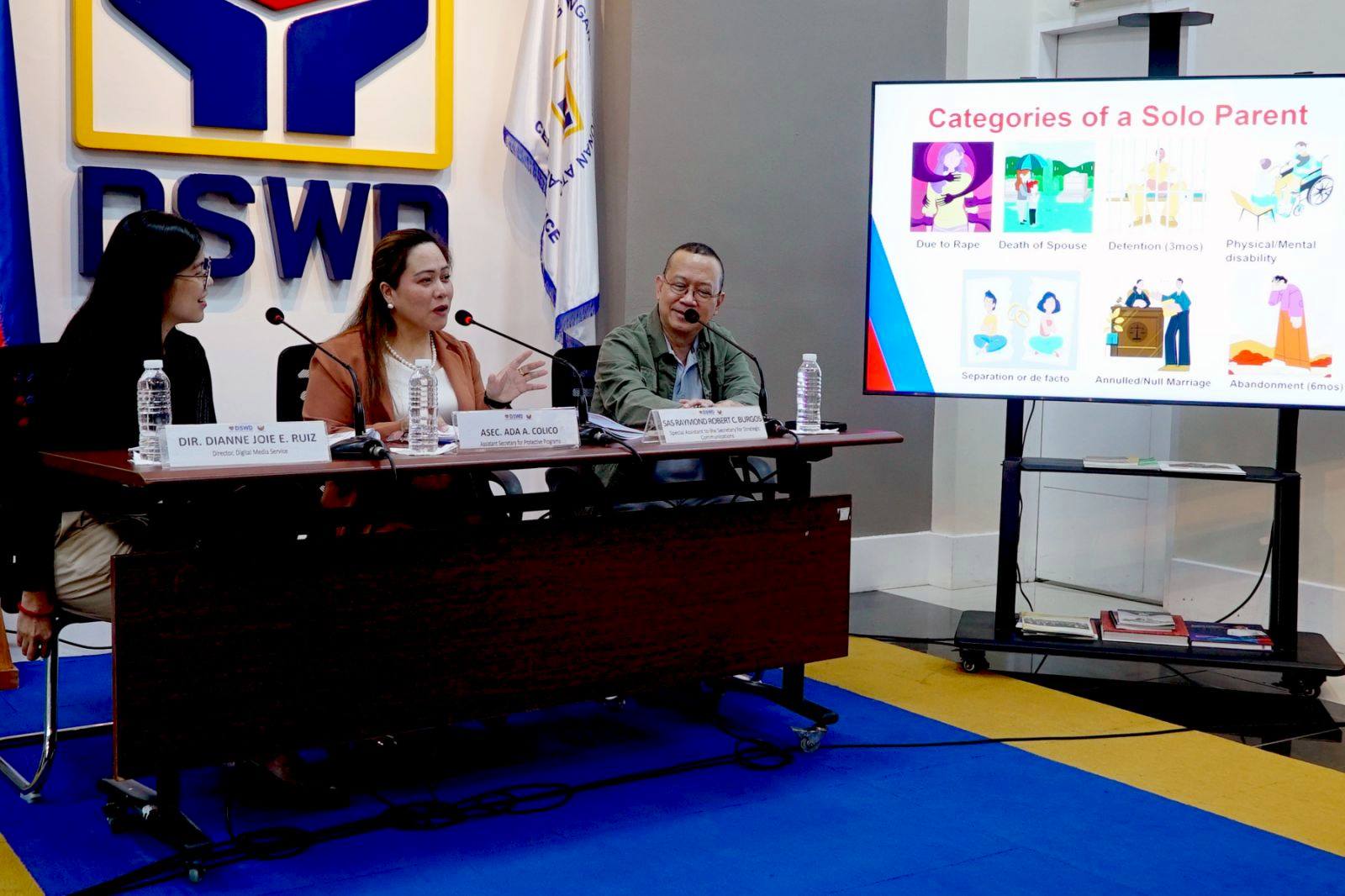
By Brian Campued
Spouses of overseas Filipino workers (OFWs) belonging to the low or semi-skilled worker category will now be regarded as solo parents and are entitled to benefits and privileges under Republic Act (RA) No. 11861 or the Expanded Solo Parents Welfare Act, an official from the Department of Social Welfare and Development (DSWD) said Thursday.
“Dapat po ang duration is continuous na one year and above. Kahit po ikaw ay may sustento pero ikaw ay solely na nag-aalaga sa iyong anak, pwede na pong ma-consider as solo parent ’yon,” DSWD ASec. Ada Colico said during her presentation on the salient provisions of RA 11861 at the agency’s central office in Quezon City.
According to Colico, the law expanded the definition of solo parents in consideration of the different parenting and childcare setups in Filipino households.
Aside from spouses of OFWs, the law also includes legal guardians, adoptive or foster parent, and relatives within the fourth degree of consanguinity or affinity of the parent or legal guardian as long as he/she provides sole parental care and support to a child or children due to abandonment; birth as a consequence of rape even without final conviction; death of a spouse; detention of spouse or partner with a minimum of three months conviction; legal separation or nullity or annulled marriage; and, whose spouse has physical or mental disability.
Among the benefits and privileges a solo parent will receive as mandated by the expanded law are: a monthly cash subsidy of P1,000 from the local government unit (LGU) for those earning minimum wage and below; 10% discount and exemption from value-added tax (VAT) on the purchase of food, medicines, and other medical supplies from birth of the child until 6 years old; automatic coverage of the National Health Insurance Program (NHIP); and prioritization in housing allocation and workforce.
Colido likewise clarified that solo parents must first be recognized by their respective LGUs before they can access the services available to them.
“Para ma-consider as a solo parent, dapat po recognized ka rin ng government, through the local government units. Hindi po ang DSWD ang nag-iissue [ng solo parent ID]. It is the local government units, through their city social welfare and development offices or their municipal social welfare and development offices,” the DSWD official explained, reminding that the solo parent identification card must be renewed every year.
-iro
